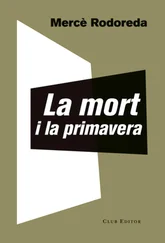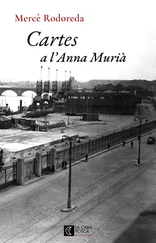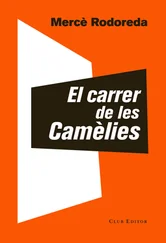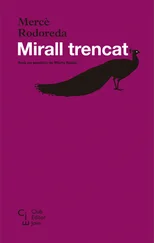He walked up the street. He had never been in a place like that. He was familiar with them, of course, but only indirectly. As a young man, all his friends had confided in him. He was a good listener and that had made him an innocent father confessor to the bolder lads. He had lived a lot through the lives of others. Too much. Sometimes this surrogacy produced in him a certain sadness that was pasty, cosmic, rough-hewn. No one cares about me. If I have a problem, I’ll have to solve it by myself. I’m like an abandoned soul in a wasteland . Life had passed him by, just beyond his reach. Like a river, he had captured the sounds, the commotion, had recognized the dangers, but he had remained on the shore. When he had thrown himself into the stream, inexpert as he was, it was to follow others. Simply a matter of contagion, as if he had caught typhoid fever. The current had dragged him to France, where he had been discarded like a dead branch. He had married young so he could work calmly, feel himself strong through his child, so he wouldn’t lose himself completely. Many years ago, a young girl, a student, had led him to the very edge of sin. The sense of vertigo had frightened him. A more experienced girl could have really derailed him, but this one, with all her charm, had only managed to trouble his spirit for a few months and prompt a spate of sleepless nights, a brief interruption of his moral serenity. The experience had left him with a tremendous attraction to crime novels and blue blouses. He had only known one woman intimately, his wife.
A military march could be heard coming from Number Fourteen. He approached it with determination. The glass door was covered by a sheer curtain. To enter he had merely to turn the knob. He took a deep breath and went inside. He would ask the first person he saw if he could use the phone. He found himself in a narrow hall with doors on either side. The military march was coming from the second door on the right. A whiff of perfume distracted him. “Lilac,” he thought. Had it not been for the music, the house would have seemed deserted, like a house recently abandoned in a village filled with the threat of an enemy. He continued along the hall till at the end he reached a comfortable sitting room. Over the sofa, in a gilded frame, presided the portrait of a gentleman. Quite Proustian, with a wing collar, gardenia in his buttonhole, romantic mustache. The gentleman was staring pensively at the door. He must be the founder. There were no shiny, golden pillows or lace curtains with pink bows, no trace of the diabolical chiaroscuro that he had always imagined. All together it had a rather grave air, a bit like the waiting room of an austere, provincial lung specialist.
Suddenly the waves of music grew louder. They must have opened the door to the room. A woman’s shrill laugh erupted from somewhere, making him jump. A maid passed quickly by, carrying an empty tray. “Madame, s’il vous plaît, the telephone.” She disappeared through a small door beyond the sofa. He heard footsteps coming from the floor above: they must be dancing. Without thinking he sat down in an armchair, feeling confused. Order, order, order. Someone was walking down the hall toward him, probably coming from the room with the music. They had shut the door, and the music — now a languid waltz — was lower. He stood up. A stout German soldier in shirt sleeves, with gray hair and a tanned face, stopped in front of him. He was carrying a bottle of cognac under his arm and an empty champagne glass in his hand. He clicked his heels. He clearly had some difficulty keeping his balance. For a moment they stood without moving. The soldier looked at him with gentle eyes. A secret flow of sympathy seemed to emerge from deep within the soldier’s intense gaze, almost like a balmy breeze. With a resolute gesture, the soldier had him sit down and filled the glass. He felt that he had never heard such a fresh sound as the liquid pouring from the upturned bottle. It spilled. Instinctively he separated his feet, but he couldn’t keep his trousers and shoes from being splashed by the tiny drops. The soldier handed him the glass and the bottle, sat on floor, took out his handkerchief, muttered some unintelligible words of excuse, and began drying the bottom of his trousers; then he raised his head and began to laugh. A childish, contagious laugh. Order, order , but he couldn’t keep himself from laughing as well. The jerking motion caused by the laughter made the liquid splash out of the glass. It rained golden drops. The soldier gestured to him to drink. He drained half the glass with one swallow. The soldier took the bottle from his hand, uttered a loud “Prosit,” and poured some cognac down his own throat, straight from the bottle. He finished what was left in his glass. The sullen maid crossed the room again, giving the two men a resentful look. “Madame. . the telephone,” he murmured with a thin, imploring voice, but the maid had vanished. Another toast paralyzed his decisiveness. Prosit . He was unsure how to respond to the numerous attentions paid to him by the soldier. He realized he had to make a decision, that it was urgent to find a phone, make the call, wake up the doctor, beg, intimidate. A gentle warmth had settled in his cheeks and began spreading insidiously through his body. It must have slipped into the obscure region of his will, changing some delicate mechanism within him. He felt a slight tingling in his legs and arms, a deep sense of well-being in his heart. With a brisk gesture he emptied another glass. How many years had it been since he had tasted cognac? Six? Seven? At that moment, mysteriously extracted from his spirit, words sprang to his mouth, vestiges of some remote Latin class. Animi hominum sunt divini , he whispered with a smile of satisfaction. The soldier opened his round eyes, nodded his head in agreement and refilled the glass. He raised it to his lips, but a violent hiccup stopped him. Order, ooooorder. A string of hiccups followed. The soldier sat down on the armrests and began slapping him on the shoulder. After each slap, he showed his appreciation by offering the soldier a melancholy smile. They returned to their drinking with looks of complicity. The soldier asked, “Franzose?” He hesitated before responding, “Barcelona.” “Spanier?” “Oui.” They burst out laughing at the same time. “Rotspanier?” “Yes.” They laughed louder and resumed drinking.
Another soldier entered the room. He was barefoot; they hadn’t heard him. The seated soldier cried out, “Spanier,” and passed the bottle to the newcomer. The painting showed two gentlemen with gardenias in their buttonholes and wing collars. The frame slowly split in two, but then the figures reassembled, as if brought together by a stubborn desire for unity. The newcomer was short, dark, and quite slender. “Mister, mister. . the telephone.” He stood halfway up, but a curious softness in his knees made him sit down again. The newcomer was distracted, didn’t respond, and began to hum a song. The other followed, then two more soldiers joined them. One had his holster looped across an arm, the other a bottle of champagne in each hand. They began singing in unison, solemnly, a vague expression on their faces.
Ich hatt’einen Kameraden,
einen bessern find’st du nit
They opened the bottles of champagne. It foamed over, spilling onto the floor. They passed it from one to another, all of them drinking.
Eine Kugel kam geflogen
gilt es mir, oder gilt es dir?
The painting now held three gentlemen, or four. All with gardenias in their buttonholes. Occasionally one was superimposed on the other, perhaps filled with the hurried wish to share confidences, but then they separated in a disorderly fashion, surrounded by gold. At one point it was possible to make out six or seven of them. A whirlwind. The champagne was followed by cognac. At times the singing resumed. Two girls came in, wearing pajamas. The first soldier stood up, filled with rage and tottering, grabbed one girl by the shoulder, the other by the arm and dragged them brutally out of the room, standing for a moment at the door, facing the hall. Every now and then he yelled with a deafening voice, “Raus!” The room became spongy, ethereal, all cottony. The chairs, floor, walls, all of it was clouds and mist. Order, order, or. . He was filled with a sense of optimism and a loud laugh issued from his mouth. He would have embraced the entire world if he could, all the men, all the birds. “All the birds.” He climbed onto the chair, concentrated a moment, and began reciting verses he had memorized twenty years before, forgotten, then retrieved in this moment of joy:
Читать дальше












